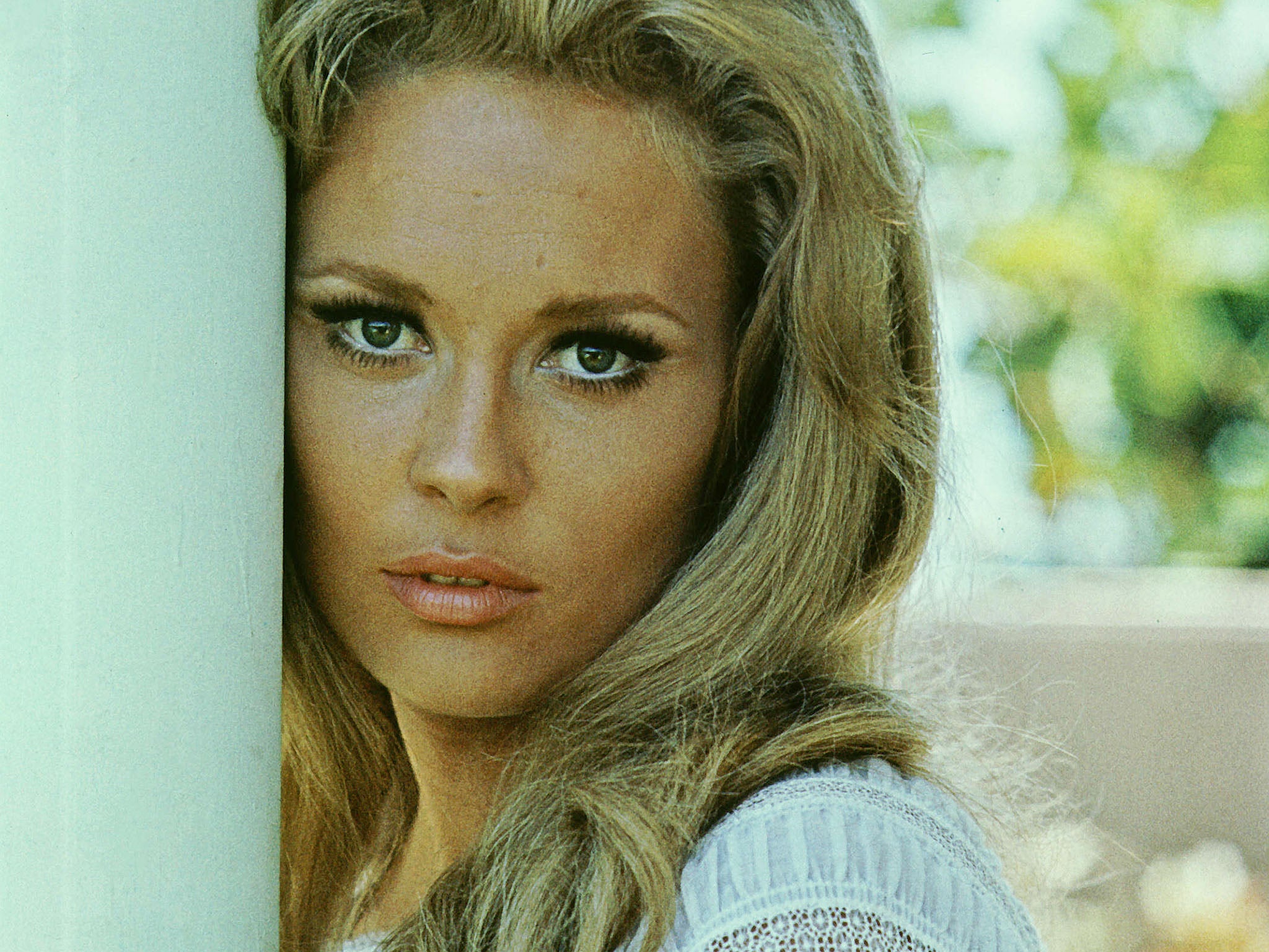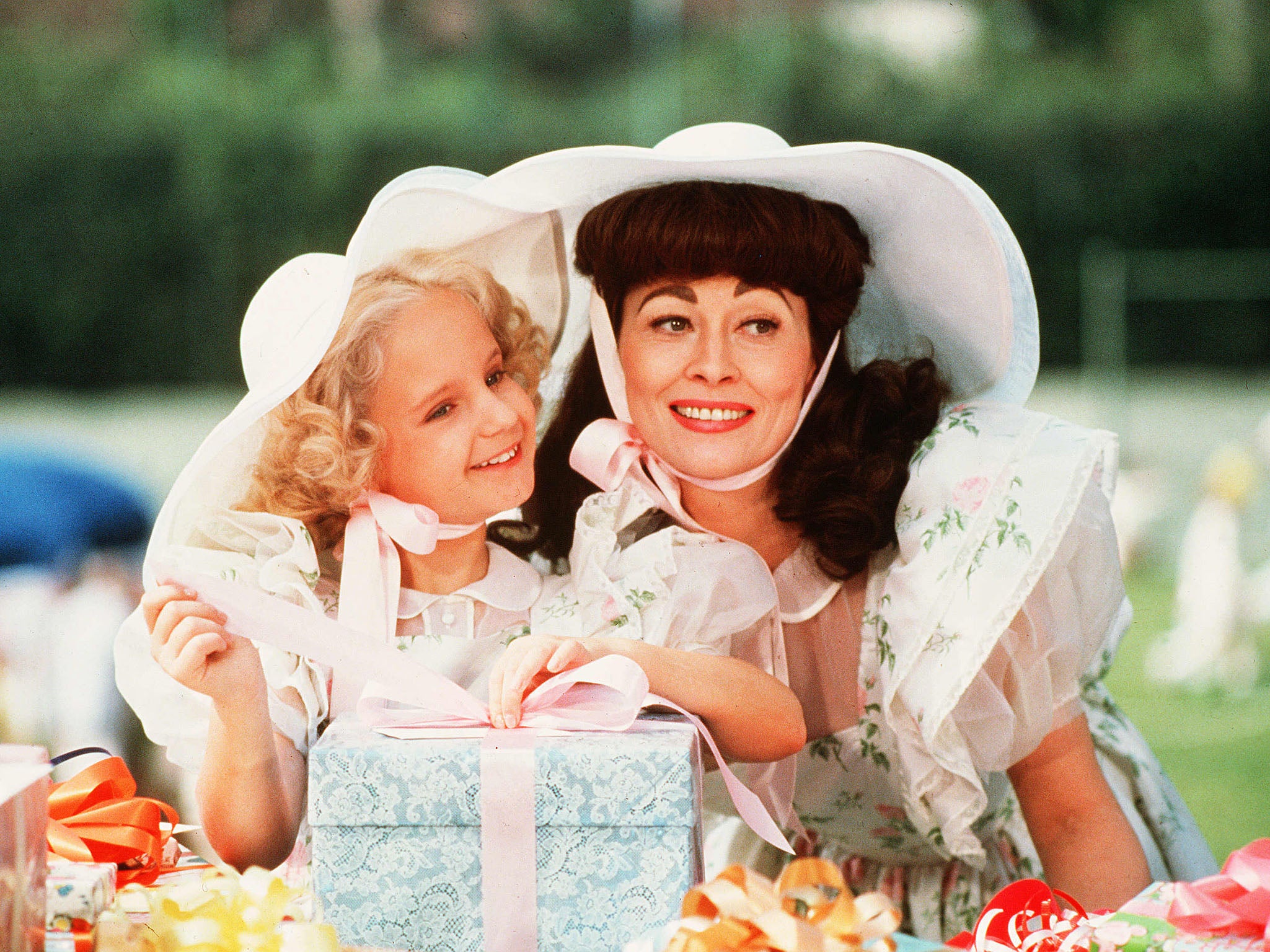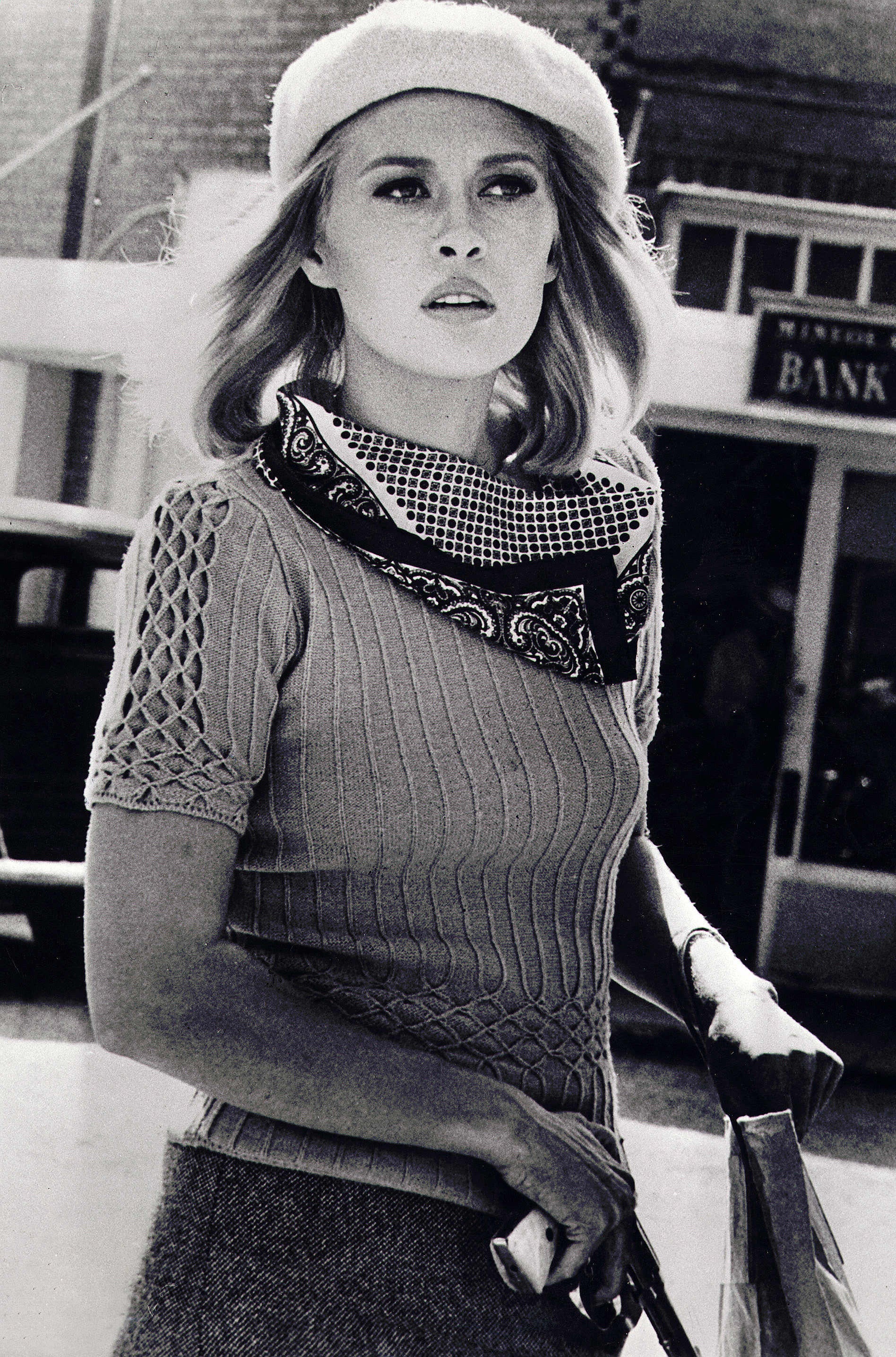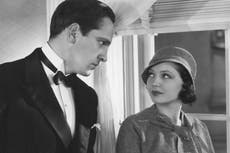‘A label I dislike? Difficult’: Why has the Faye Dunaway myth overshadowed her genius?
Too often the legacies of Hollywood starlets are saddled with accusations of rotten behaviour, usually from men. As the ‘Chinatown’ star’s great flop ‘Mommie Dearest’ turns 40, Adam White asks whether it’s time to reassess the myths about one of the last living cinema legends


Life in the star chamber is made of very dangerous stuff,” Faye Dunaway wrote in her 1995 autobiography. “You’re damned lucky to ever get out alive.” Dunaway’s book Looking for Gatsby is filled with that kind of hard-boiled prose. It’s written as if with a cigar in hand, toeing the line between grit and camp extravaganza. That’s Dunaway all over though: an Oscar-winning legend as famous for mixing hard and soft in her starring roles as she is for being, to quote that most dubious of phrases, “a difficult actress”.
The Faye Dunaway myth – a hellish one built on whispered tales of feuds, demands and cups of urine tossed in directors’ faces – has long overshadowed her genius as an actor. And when we do tend to talk about her acting today, and not the chic glamour she brought to films like Bonnie & Clyde and The Thomas Crown Affair, it tends to be in reference to 1981’s Mommie Dearest, her notoriously maligned Joan Crawford biopic that became catnip for drag queens the world over. Forty years after the film’s release last week, Dunaway’s go-for-broke and then go-even-further performance as the lonely star remains just as polarising. As it was regarded then, it’s either a committed and deliberately extreme tour de force, or an ill-conceived disaster.
Based on a bestselling memoir by Crawford’s daughter, Mommie Dearest portrayed the legendary star as an abusive tyrant, with Dunaway sacrificing any and all subtlety in exchange for the loud and grotesque. She won a Razzie for her performance, with Variety remarking that Dunaway didn’t so much chew the scenery as swallow it whole. “No more wire hangers!” Dunaway bellows in one famous scene. She would later claim that the line left “an ugly wound on [her] psyche”. While her work in the film had some famous fans – notably the revered critic Pauline Kael – others lambasted it. And with the passing of time, Dunaway’s own reputation has remained just as divisive.
But reputations – of women in the public eye, in particular – are also funny things. The idea of Dunaway as a kind of demonic harridan was spun by just a handful of major figures, among them Bette Davis and filmmakers Otto Preminger and Roman Polanski, and she has valiantly attempted to explain most of them away. She has blamed misogyny, her own desire for perfectionism, and a dogged will to survive in an incredibly abusive industry.
Yes, there are also the less high-profile anecdotes (“Tales of her outbursts – in hair salons, hotels, and optometrists’ offices as well as on movie sets – are told and retold around town,” wrote Harper’s Bazaar in 2016), and she may well have behaved terribly at times. This isn’t an either/or situation. But it feels wrong to let certain individuals have the last word. Dunaway turned 80 in January, and is one of the last surviving icons of New Hollywood, or the American film industry’s New Wave of the Sixties and Seventies. Shouldn’t her story be treated with a little more nuance?
As an actor, Dunaway always marked herself as a woman of powerful contradictions. Physically, her characters tended to be sharp and polished, always immaculately tailored in cutting-edge fashions. Behind their eyes, though, was a wildness, a burning intensity that made Dunaway’s most famous creations – fatalistic bank robber Bonnie Parker; the terrifyingly ruthless TV executive in Network; a traumatised femme fatale in Chinatown – so eerie and memorable. Few could touch Dunaway’s skill at the time, nor her influence on culture at large. A news report from Carnaby Street in 1967, uploaded to YouTube a few years ago, sees her mobbed by dozens of teenage lookalikes, all of them attempting to replicate her icy cool.
But with all of that power and attention came the stories. The fights between Polanski and Dunaway on the set of Chinatown (He said, “She’s a gigantic pain”; she said, “[His] incessant cruelty… the constant sarcasm, the never-ending need to humiliate me… [incidents] that bordered on sexual harassment”); the fights between Dunaway and Davis on the set of The Disappearance of Aimee; the fights between Dunaway and Preminger on the set of Hurry Sundown; the $6 million lawsuit Dunaway filed against Andrew Lloyd Webber over her apparent dismissal from a Los Angeles production of Sunset Boulevard (they later settled out of court).

In Looking for Gatsby, Dunaway makes a convincing case for being perpetually misunderstood, but also seems reluctant to ever admit any wrongdoing herself. Backstage dramas have trailed Dunaway since the very beginning of her film career, but she seems to suggest it’s just an unfortunate coincidence. “Piranhas” in the media “feed off negativity”, she wrote in her book, while arguing that she is consistently “flayed in magazines, newspapers and television reports for things [I] had absolutely no part in”. The idea of Dunaway being entirely blameless in every one of the many incidents that have come to define her off-camera life seems unlikely, but she does also make some good points. Throughout her book, she discusses the damaging narratives that tend to stick in the public imagination and the kind of behaviour that female actors of her era seemed incapable of getting away with.
“A label I dislike: ‘difficult’,” she writes. “Another way to say it is ‘perfectionist,’ you know. God is in the details. I do want to get it right. The fact is a man can be difficult and people applaud him for trying to do a superior job. People say, ‘Well, gosh, he’s got a lot of guts. He’s a real man.’ And a woman can try to get it right and she’s ‘a pain in the ass’.”
Filmmaker David Howard and producer Rik Hall – who co-founded and operate the production company Monster Films – remember Dunaway as exacting and intense, but also brilliant. They all worked together in the most unlikely of places: Cardiff, Wales, with Dunaway flying in from Hollywood to play a one-armed detective in the pulpy horror comedy Flick in 2007. Dunaway stayed in what Howard calls “a grotty rented flat in Cardiff Bay” for the duration of filming, and neither complained nor expected special treatment. She would shuffle elegantly between the set and “a tattered little caravan” she rested in – one shipped from a holiday park in Trecco Bay, Porthcawl – and had no problem with being approached by fans while using Pontypool’s public loos during production.
“This was a woman who was in her mid-sixties, who came to Wales on her own and for very little money to do a movie because she liked the script,” Howard tells me. “She had no entourage, no airs or graces, she just came because she is a bonafide supporter of independent film.” It put a lot into perspective for him. “All the things that you hear about her being a diva and storming off set, none of it rang true at all. This woman was a consummate professional. Not only in terms of knowing her lines and understanding the part, but she treated every single person on that set exactly the same way. I mean, the woman was a miracle.”

Hall remembers Dunaway being fastidious about lighting and framing, but to a degree that made sense. “The light has to be right, the equipment to do hair and make-up has to be right,” he says. “She is demanding, but none of it was about her, it was about the film. It wasn’t a need for this food, or this comfort, or this luxury. She’s aware of her image and being a star and maintaining that image [on-screen]. But she doesn’t have an ego about herself.”
When certain crew members showed a lack of respect to Howard and Hall – both young filmmakers making their feature debut – Dunaway rounded on them and laid down the law. “She picked up on it and straight away came on our side,” Howard says. “She was like, ‘Don’t you dare speak to them like that!’ She was straight there in our corner. And we had no trouble after that.”
That Dunaway was a dream during those 10 days in Wales doesn’t completely discount some of the horror stories that surround her. In 2019, she was fired from a play for allegedly slapping a crew member, then later sued by her former assistant for allegedly calling him “a little homosexual boy”. But it does suggest that she contains multitudes. It also feels important to place Dunaway in the context of the Hollywood in which she rose. She was a young woman from a broken home who landed in an industry of vultures and predators. Polanski, who was fundamental in shaping the idea of Dunaway as a tyrannical diva, directed her just a few years before he drugged and raped a 13-year-old girl.

In her book, Dunaway writes that her relationship with Polanski was just one example of how she clashed with men who expected women to be docile and passive. “He had a taste that ran to young, malleable girls,” she writes. “And that’s not what I was … Young girls are not threatening, young girls don’t have ideas, they’re not independent, and I was all of those. I was a pretty considerable actress by that time, as well, with strong opinions about my work. Those differences set the stage for a clash.”
In Peter Biskind’s Hollywood New Wave exposé Easy Riders, Raging Bulls, cinematographer John Olonzo claims that Polanski insisted that Dunaway stay sat in a car on the Chinatown set despite her need for the bathroom. In retaliation, she allegedly threw a cup of her own urine at him. Dunaway called the prolific urban legend “absolutely ridiculous” in a notorious Guardian interview for Flick in 2008, before she tossed the journalist out of the room for asking about it. Then again… “Knowing what we know now about Polanski,” Howard says, “there are many people out in the #MeToo movement who’d love to throw a cup of piss in his face. And would be warranted in doing so!”
Back then, Dunaway seemed to operate in any way that could aid her survival and continued success. In a sense, she operated like a man. She demanded equal billing with Warren Beatty for Bonnie & Clyde – setting a precedent for women in Hollywood; asked questions of her directors and co-stars; embraced method acting even if it meant potentially alienating those around her; and sought a level of respect that so many of her leading men (Nicholson, Brando, McQueen, Hoffman) seemed to naturally draw. “I watched [Warren] as an actor take control of his destiny,” she writes in Looking for Gatsby. “If you have a vision, the only way to protect it is to fight body and soul, to go to the mat time and again … go through brick walls. It’s intense determination.”
It made things a lot harder for her, as it does with any woman who breaks some kind of glass ceiling, but the journey to the top of Hollywood became a lot easier for others in her wake. Mommie Dearest may have only strengthened the idea of Dunaway as a volatile movie star, but it shouldn’t come to define her, either. Nor should the messier tales of behind-the-scenes scandal. Instead we’d be smart to recognise that the truth probably exists somewhere in the middle: she is an actor of enormous talent and dedication, who values expertise and competency, but who you wouldn’t necessarily want to cross if they’re in a bad mood. And isn’t that the very best kind of movie star?
Join our commenting forum
Join thought-provoking conversations, follow other Independent readers and see their replies
Comments


Bookmark popover
Removed from bookmarks